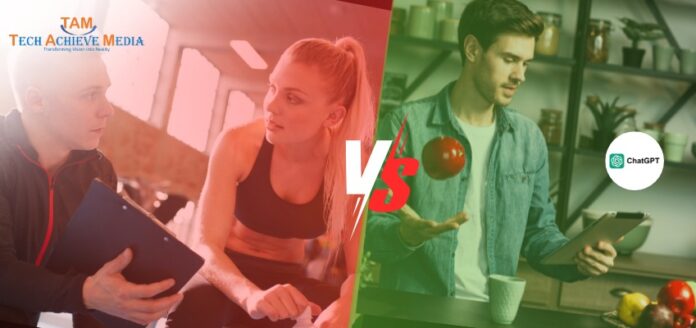ChatGPT, ever since its launch in 2022, is slowly becoming an integral part of our lives. From drafting emails and writing presentations to answering complex questions in seconds, the Gen AI chatbot seems to have an answer for everything including what one should eat for dinner. While there are no statistics on how many ChatGPT users specifically consult it for diet or nutrition information, as of August 2025, there are roughly 400 million active weekly users of ChatGPT globally, according to DemandSage, meaning a small fraction of these millions likely use the tool for diet advice.
Also read: The Dark Side of ChatGPT’s Ghibli Trend – Why It’s Not Good News
Stories of individuals achieving significant weight loss using AI-generated diet plans, shared on platforms like Instagram and YouTube, have increased public interest and awareness. Users generate customized diet charts, including meal and snack ideas, for specific needs like weight loss, vegetarian diets, or protein-rich plans. The generative AI bot provides answers based on the prompts it receives, which may offer a certain degree of accuracy.
However, as more people turn to ChatGPT as a “virtual dietician,” experts are sounding the alarm: Can an AI really understand the body, health conditions, or nutritional needs the way a certified professional can? “No,” says Rohit Yadav, Certified Trainer and Coach at RK Fitness. Tech Achieve Media spoke to the trainer against the backdrop of a recent case of a 60-year-old who, after seeking ChatGPT’s advice on how to improve his diet, was hospitalized with severe psychiatric symptoms. According to a story published in the New York Post, ChatGPT reportedly advised him that salt could be swapped with sodium bromide.

“The problem is simple: no two people need the same diet. Everyone’s body, health condition, and nutritional requirements are different. That’s where tools like ChatGPT fall short. It doesn’t ‘know’ you. Instead, it just generates plans based on prompts. One plan might cut out carbs entirely, another might eliminate fat, while someone else gets almost no protein. There’s no consistent or personalized approach. Sometimes the advice might be correct by chance, but just as often, it’s completely off the mark,” said Rohit Yadav on the use of ChatGPT for dietary needs.
Along the same lines, a recent study published in the National Library of Medicine found that the chatbot is currently unable to replace a healthcare professional’s consultation. “Although ChatGPT exhibited reasonable accuracy in providing general dietary advice for non-communicable diseases (NCDs), its efficacy decreased in complex situations necessitating customized strategies,” stated the study.
Why Human Expertise Trumps ChatGPT and Its Guidance
Studies have revealed that ChatGPT offers a reasonable level of accuracy in the nutritional information it suggests. However, when it comes to specific cases, the advice offered may be too generic and not customized. “Take a beginner as an example. He’s just started going to the gym. Say he’s six feet tall but weighs only 50 kg and wants to bulk up. If he blindly follows AI-generated advice, it might tell him to suddenly double his carb intake, which means jumping straight from 200 grams of rice to 400 grams in a day. His digestive system won’t be able to handle that shock,” says Rohit Yadav.
Also read: Consumers in India are Forming Emotional Bonds with AI: Accenture
A personal trainer, on the other hand, understands how the body adapts, opines Yadav. “If you tell them you currently eat 200 grams of rice, they won’t push you to 400 grams overnight. They’ll guide you to increase gradually, first 250 grams, then 300, then 350, while also balancing fat and protein in proportions your body can digest,” he adds.
Yadav states that this is where AI tools like ChatGPT fall short. “They may prescribe extreme diet changes instantly, ignoring how your liver, kidneys, and overall metabolism will react. A qualified trainer creates a tailored plan, one step at a time, ensuring proper nutrition and long-term health. AI doesn’t provide that level of understanding,” he concludes.








Very informative story
It was quite nice and informative about AI
Coach has made very good points